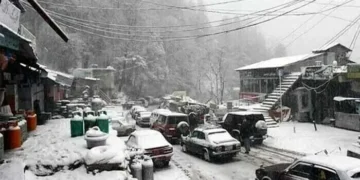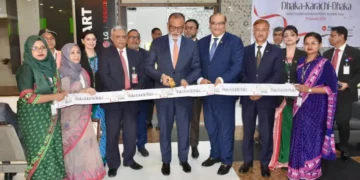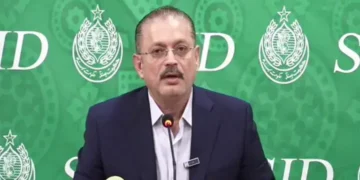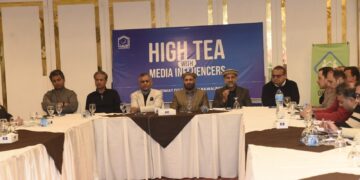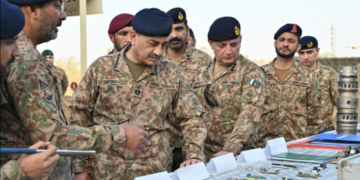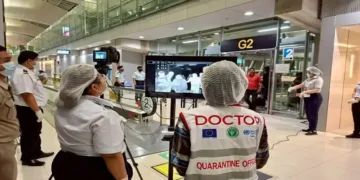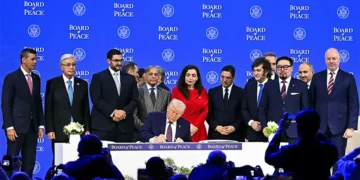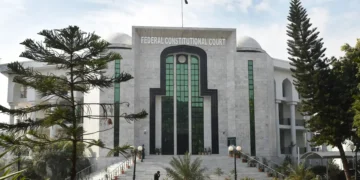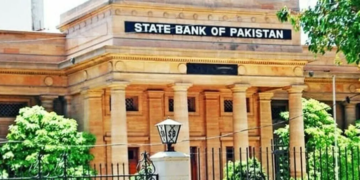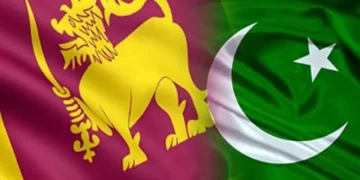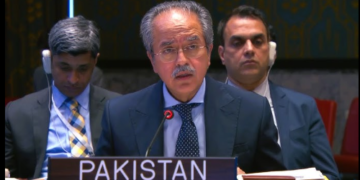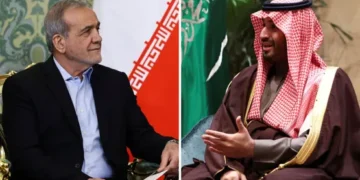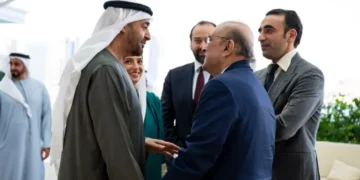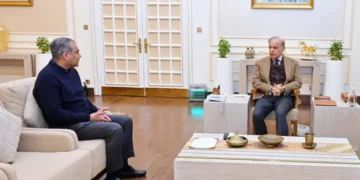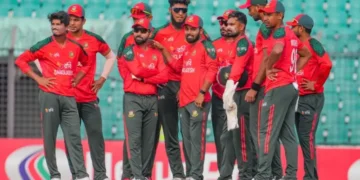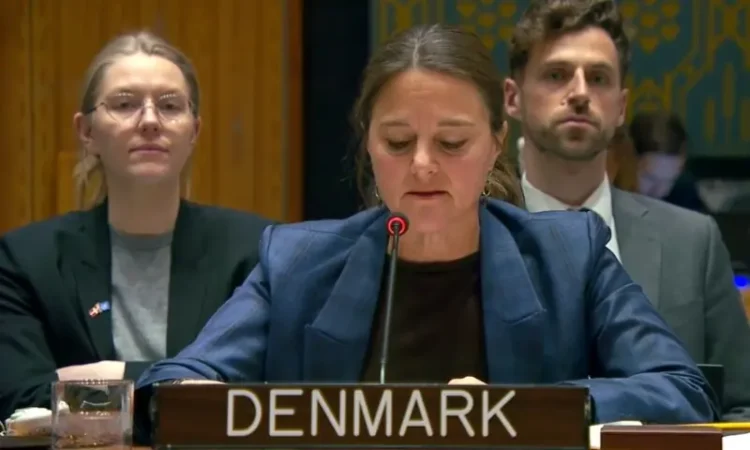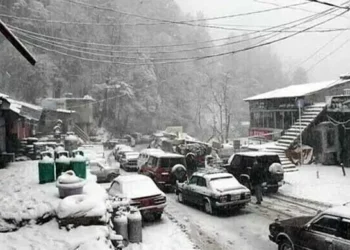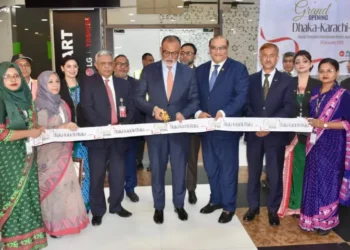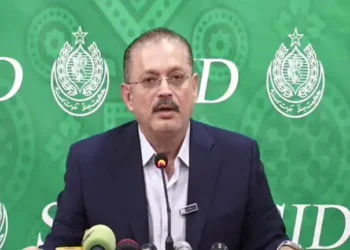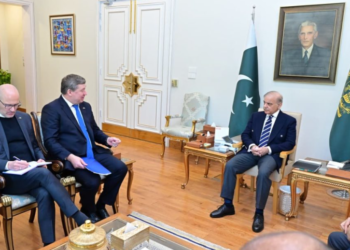UNITED NATIONS (MNN); Denmark has expressed concern over what it termed a serious threat posed by the banned Tehreek-i-Taliban Pakistan in Central and South Asia, warning that the militant group is receiving both logistical and significant support from the de facto authorities in Afghanistan.
Speaking as chair of the UN Security Council’s ISIL (Daesh) and Al-Qaeda Sanctions Committee, Denmark raised these concerns during a briefing at a UNSC meeting in New York on Wednesday.
The presence of TTP militants in Afghanistan has long strained relations between Islamabad and the Taliban administration. Since the Taliban returned to power in Kabul in 2021, Pakistan has repeatedly accused them of sheltering thousands of TTP fighters who have intensified attacks on Pakistani security forces, especially in Khyber Pakhtunkhwa and Balochistan.
Denmark’s Deputy Permanent Representative to the UN, Sandra Jensen Landi, told the council that the TTP, with an estimated 6,000 fighters, poses a major regional threat and benefits from support provided by the de facto Afghan authorities.
She said the group had carried out multiple high-profile attacks inside Pakistan from Afghan territory, many resulting in heavy casualties.
Landi also gave a detailed overview of the growing threats posed by Daesh, Al-Qaeda and their regional branches, citing the latest analysis by the UN monitoring team. She said these groups continue to expand propaganda, exploit social media, attract young recruits and raise funds. Their increasing use of cryptocurrencies, she added, complicates sanctions enforcement.
She noted that following significant losses in the Middle East, Daesh has shifted its focus to Africa, where affiliates such as the Islamic State West Africa Province have increased their operations. ISIL-Khorasan, she warned, remains one of the most dangerous groups in Central and South Asia, with around 2,000 fighters led by Sanaullah Ghafari, continuing to target Shia communities, Afghan authorities and foreign nationals.
Landi explained that while Al-Qaeda’s central leadership has weakened, its affiliates in Africa, including Jamaat Nasr al Islam wal Muslimin, have taken advantage of local grievances to expand their influence and resources. Al-Qaeda in the Arabian Peninsula also remains active in raising funds and inciting attacks.
She stressed that both Daesh and Al-Qaeda have shown resilience and adaptability, exploiting instability, weak governance and new technologies to extend their reach, underscoring the need for strong multilateral cooperation under the 1267 sanctions regime.
Following her briefing, Pakistan’s Deputy Permanent Representative Usman Jadoon addressed the meeting, saying that global terrorism continues to evolve rapidly, aided by new technologies, unresolved conflicts and external interventions.
Jadoon said Pakistan, as a frontline state against terrorism, has paid a heavy price, with over 80,000 lives lost and billions of dollars in economic losses. He said Al-Qaeda was largely dismantled due to Pakistan’s efforts, while security forces continue to confront threats originating from Afghanistan, including ISIL-K, TTP, the Baloch Liberation Army and the Majeed Brigade, supported by what he called Pakistan’s principal adversary in the region.
He emphasised that the UNSC’s 1267 sanctions framework must reflect on-ground realities and be broadened to list individuals and entities without linking them to religion, nationality or ethnicity. He called for transparent, unbiased mechanisms for listing and delisting and stressed that the sanctions committee must evaluate all proposals objectively rather than through political considerations.
He added that the UN’s counter-terrorism system must also be equipped to designate violent far-right, extreme nationalist, xenophobic and Islamophobic groups worldwide under a zero-tolerance policy.
Failed Pakistan-Afghanistan Counterterrorism Talks
Pakistan has experienced a surge in attacks by the TTP since the group ended its ceasefire with the government in November 2022. Security forces have continued operations along the northwestern border in an effort to counter the growing threat.
Tensions between Pakistan and Afghanistan have intensified over cross-border terrorism. Islamabad has repeatedly urged Kabul’s rulers to act against militants using Afghan territory, while the Taliban deny that such groups are being allowed to operate from their soil.
In an attempt to de-escalate tensions following border clashes in October, the two sides held dialogue to explore mechanisms for sustained peace. The second round of talks took place in Ankara on October 25, but Information Minister Attaullah Tarar later stated that no workable solution emerged.
Mediators Turkiye and Qatar managed to revive the process briefly, and a joint statement on October 31 indicated that further discussions would continue in Istanbul on November 6. However, after the third round of talks on November 7, Defence Minister Khawaja Asif declared the discussions effectively over, saying they had entered an indefinite pause due to deep differences.
Following the breakdown of talks, the Afghan Taliban suspended trade with Pakistan, while Pakistan had already closed its border for trade shortly after the October clashes.

